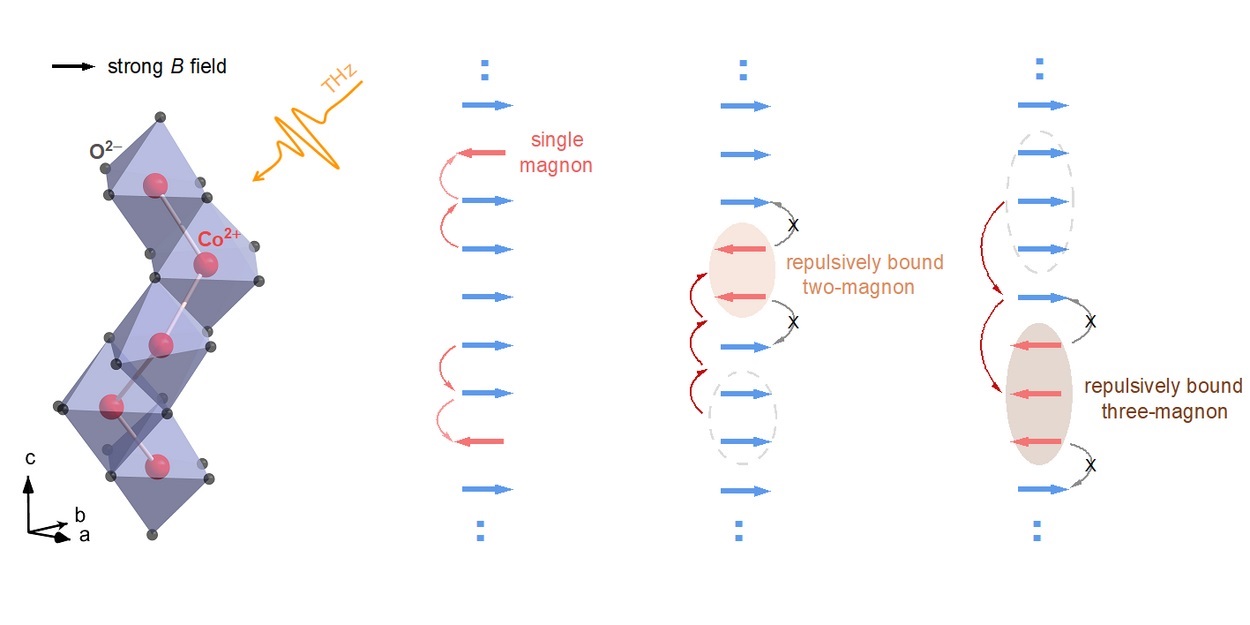06/27/2024
Together with colleagues from Augsburg, Bonn, Cologne, Dresden, Geneva and Prince George (Canada), Professor Zhe Wang from the Department of Physics at TU Dortmund University has discovered an exotic quantum state of the matter in a solid-state compound – repulsively bound magnons. This observation is so spectacular for fundamental research in the field of quantum physics that it has been published in the renowned journal “Nature”.
Atoms, molecules or solids that are formed by attractive forces between their constituents are present in nature everywhere. In contrast to these stable composites already known to science, ones stabilized by repulsive forces were long regarded as theoretical constructs due to their instability in naturally occurring systems. Especially in solid-state compounds, any observation of repulsively bound particles was deemed impossible. Professor Zhe Wang, physicist at TU Dortmund University, and his collaboration partners recently succeeded in observing such repulsively bound magnons experimentally – an exotic many-particle quantum state.
They observed this state in BaCo2V2O8, a special spin chain compound. A spin is the intrinsic magnetic degree of freedom of electrons in an atom. The team used terahertz light sources to excite the spins in BaCo2V2O8 and study their dynamics in strong external magnetic fields of up to 60 tesla. On the one hand, the researchers detected the magnons already known, i.e. low-energy elementary magnetic quasiparticle excitations. On the other hand, however, they also discovered the special repulsively bound two-magnon and three-magnon states as high-energy composite excitations. The compound BaCo2V2O8 is a solid-state realization of the Heisenberg-Ising model, which for over a hundred years has played an important role in understanding many physical phenomena. The model has already influenced various branches of physics – from condensed matter to cold atoms and quantum information.
“Our observation of the repulsively bound magnons was a big surprise for us,” says Professor Zhe Wang. “Our study enables an initial understanding of these complex many-particle quantum states in a representative solid-state system. How these exotic states manifest themselves in other, even more complex quantum systems and their potential applications in quantum information are very exciting and challenging tasks for future research.”





